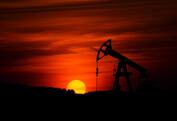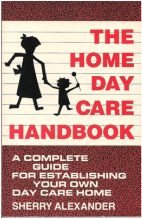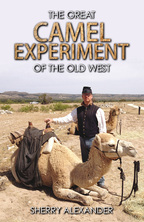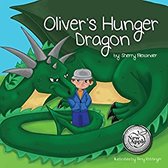 Photo by Zbynek Burival on Unsplash
Photo by Zbynek Burival on Unsplash Many common actions we do have huge negative effects on our planet and its inhabitants. Some reasons you may think drilling is good, is it has immediate economic benefits. By removing the oil, it also reduces pressure causing less gases to be released. If the oil that is pushing the gases to the surface is not dealt with, more marine life will die. You may think the positives of oil drilling outweigh the negatives, but could it be, the negatives actually out way the positives? Proponents of drilling in the Arctic National Wildlife Refuge, in Alaska, should use a better, renewable source of energy, since drilling for oil can cause harm to wildlife and marine life, drilling can heavily affect the environment, it has a negative effect on plants, and it can cause climate change to speed up.
Advocates of drilling, you should think about using a more renewable source of energy for the wildlife and marine life that are in danger if drilling happens in the Arctic National Wildlife Refuge. One reason is drilling can affect the way animals go about their habitat. The second reason is if an oil spill were to occur, it would mean animals’ lives. The next two quotes come from the Wilderness Society's article “7 Ways Oil and Gas Drilling Is Bad for the Environment”: "Oil and gas extraction is a menace to wildlife. Loud noises, human movement and vehicle traffic from drilling operations can disrupt avian species’ communication, breeding and nesting..." In this quote, it reveals how oil drilling can negatively affect wildlife. “Big oil spills are known killers of wildlife… Smaller spills, including of other substances in the oil extraction process... can also be dangerous. During oil extraction on land, drilling fluids are injected into the well for lubrication. These oil-based fluids known as "mud" are supposed to be captured in lined pits for disposal, but they’re often spilled and splashed around the drilling site....” This quote states that oil spills, big or small, can kill wildlife or marine life. It also states substances used in the extraction process can spill and kill wildlife and marine life. On the contrary, this next quote informs us that underwater oil pockets can seep out causing a small amount of marine life to die. "...natural oil seepage accounts for more than half of the oil pollutants in the ocean, which push methane gas into the atmosphere and create oil slicks on the water’s surface that can negatively effect marine populations. Oil drilling reduces the pressure of oil reservoirs underground, which greatly reduces the amount of hydrocarbon seepage – and the amount of methane gas in the atmosphere..." (Flournoy) Although, if they do extract this oil, it can disrupt the marine life that lives there, and if the oil were to spill, it could be devastating. This paragraph has talked about how wildlife and marine life are heavily affected by drilling. Meaning, the animals that were once safe and protected in the Arctic National Wildlife Refuge would have their lives at risk if drilling took place. This is one of the reasons why you should use a renewable source of energy.
In addition, advocates need to consider the consequences to the environment if we do not use a renewable source of energy. The first two quotes come from the article, “7 Ways Oil and Gas Drilling Is Bad for the Environment”. The first quote talks about how the damage of oil drilling can be irreversible. "Infrastructure built for oil and gas extraction can leave behind radical impacts on the land. The construction of roads, facilities and drilling sites known as well pads requires the use of heavy equipment and can destroy big chunks of pristine wilderness. The damage is often irreversible." If we let drilling occur in the Arctic National Wildlife Refuge, it could permanently damage the landscape. "The study’s researchers warned that even if oil and gas companies eventually abandon these sites, it can take centuries before the land fully recovers… Development of oil and gas complexes can cause serious and long-term damage to land, including, Stripping the environment of vegetation, Increasing erosion, which can lead to landslides and flooding, Disturbing the land’s ground surface, Seriously fragmenting unspoiled wildlife habitats" This quote provides a little hope that the land would eventually go back to the way it was, but it said that it could take centuries. The quote also states some of the actions that need to take place to drill, and that those actions can have a long-term effect on the environment. What is a little bit of land for such a nice economic benefit you may ask? It is true that oil drilling is a great way to boost the economy. With drilling comes more jobs, and the price of oil is good for whichever country has it. A quote found from an article on the website Scinceing. “The process of extracting, refining and using the by-products of crude oil requires hundreds, if not thousands of people: the industry built around oil drilling and oil itself creates jobs in a wide number of industries including shipping and transportation as well as medical research – the immediate benefit of oil drilling comes in the form of job creation and economic boosts...” (Flournoy) Are more jobs being made at the cost of our planet really worth it? The jobs only last as long as the oil is there. The destruction stays long after the jobs leave. In all, the environment will get destroyed if drilling happens in the Arctic National Wildlife Refuge. This destruction may be irreversible, or it will take centuries to go back to the way it was. This is just another reason to use a renewable source of energy.
Promoters of drilling, you should also use a renewable source of energy for the plants that are being killed because of drilling. The subsequent quote comes from the website Sinceing. “Oil drilling in Alaska can have disadvantages for plant life. Seismic vibrations can disrupt plants' growth patterns. In addition, the infrastructure from oil drilling can cause drainage issues for plants. Infrastructure, particularly road-building, can also lead to alkaline dust spreading across and settling on topsoil. This dust can have negative impacts on plant development and overall health.” (Devaney) Plant growth patterns get disrupted, the infrastructure required for drilling causes plants to have drainage problems, and alkaline dust gets spread across the topsoil, which has negative impacts on plant development and health. With our ever growing society we have less and less plant life. We must keep the plants we have left alive and well. For the plants, use a renewable source of energy.
Supporters of drilling, the last point you should consider for using a renewable source of energy is how your lives could be in danger, along with the whole planet. Drilling can contribute to climate change. The oil extraction process can cause greenhouse gases to be released into the air. Also, when oil is used in cars or when it is burned, it can cause these gases to be released. I found a quote to support this in the “7 Ways Oil and Gas Drilling Is Bad for the Environment” article. “... humans have been burning more and more fossil fuels, releasing more greenhouse gases into the atmosphere. These emissions have been trapping unwanted solar heat and causing the planet’s temperatures to rise. The consequences are all around us in the form of longer wildfire seasons, stronger hurricanes and harsher heatwave... Another gas, methane, is released during the extraction of natural gas through the method of “fracking.”” This quote explained how greenhouse gases, including gases released when oil is being extracted, are a direct cause of climate change. This is one of the many reasons to use a renewable energy source.
To conclude, advocates of drilling for oil in the Arctic National Wildlife Refuge should find and use a less harmful, more renewable source of energy. Proponents of drilling may have thought that the positives of drilling outweighed the negatives. Two of these reasons may have been that oil can boost the economy, and by taking the oil out from the oceans, it helps marine life. From one or all of my reasons, you’ve changed your mind to think there are more negative outcomes than positive ones. Here are the reasons summarized. First, wildlife and marine life are in danger if drilling happens in the Arctic National Wildlife Refuge. Next, drilling can have a huge, negative, environmental impact, and drilling can have a devastating effect on plants. Lastly, drilling can cause climate change. Many actions that happen all around us have huge, negative effects on our planet and its inhabitants. Have you ever thought about the consequences of oil drilling? In the same way as other actions, it has a catastrophic effect on our planet. You can do your part: stop the drill.
Works Cited List
“7 Ways Oil and Gas Drilling Is Bad for the Environment.” The Wilderness Society, 9 Aug. 2019, https://www.wilderness.org/articles/blog/7-ways-oil-and-gas-drilling-bad-environment
Devaney, Erik. “The Disadvantages of Oil Drilling in Alaska.” Sciencing, 2 Mar. 2019, https://sciencing.com/the-disadvantages-of-oil-drilling-in-alaska-13662686.html
Flournoy, Blake. “Oil Drilling Benefits.” Sciencing, 2 Mar. 2019, https://sciencing.com/oil-drilling-benefits-6127185.html
Advocates of drilling, you should think about using a more renewable source of energy for the wildlife and marine life that are in danger if drilling happens in the Arctic National Wildlife Refuge. One reason is drilling can affect the way animals go about their habitat. The second reason is if an oil spill were to occur, it would mean animals’ lives. The next two quotes come from the Wilderness Society's article “7 Ways Oil and Gas Drilling Is Bad for the Environment”: "Oil and gas extraction is a menace to wildlife. Loud noises, human movement and vehicle traffic from drilling operations can disrupt avian species’ communication, breeding and nesting..." In this quote, it reveals how oil drilling can negatively affect wildlife. “Big oil spills are known killers of wildlife… Smaller spills, including of other substances in the oil extraction process... can also be dangerous. During oil extraction on land, drilling fluids are injected into the well for lubrication. These oil-based fluids known as "mud" are supposed to be captured in lined pits for disposal, but they’re often spilled and splashed around the drilling site....” This quote states that oil spills, big or small, can kill wildlife or marine life. It also states substances used in the extraction process can spill and kill wildlife and marine life. On the contrary, this next quote informs us that underwater oil pockets can seep out causing a small amount of marine life to die. "...natural oil seepage accounts for more than half of the oil pollutants in the ocean, which push methane gas into the atmosphere and create oil slicks on the water’s surface that can negatively effect marine populations. Oil drilling reduces the pressure of oil reservoirs underground, which greatly reduces the amount of hydrocarbon seepage – and the amount of methane gas in the atmosphere..." (Flournoy) Although, if they do extract this oil, it can disrupt the marine life that lives there, and if the oil were to spill, it could be devastating. This paragraph has talked about how wildlife and marine life are heavily affected by drilling. Meaning, the animals that were once safe and protected in the Arctic National Wildlife Refuge would have their lives at risk if drilling took place. This is one of the reasons why you should use a renewable source of energy.
In addition, advocates need to consider the consequences to the environment if we do not use a renewable source of energy. The first two quotes come from the article, “7 Ways Oil and Gas Drilling Is Bad for the Environment”. The first quote talks about how the damage of oil drilling can be irreversible. "Infrastructure built for oil and gas extraction can leave behind radical impacts on the land. The construction of roads, facilities and drilling sites known as well pads requires the use of heavy equipment and can destroy big chunks of pristine wilderness. The damage is often irreversible." If we let drilling occur in the Arctic National Wildlife Refuge, it could permanently damage the landscape. "The study’s researchers warned that even if oil and gas companies eventually abandon these sites, it can take centuries before the land fully recovers… Development of oil and gas complexes can cause serious and long-term damage to land, including, Stripping the environment of vegetation, Increasing erosion, which can lead to landslides and flooding, Disturbing the land’s ground surface, Seriously fragmenting unspoiled wildlife habitats" This quote provides a little hope that the land would eventually go back to the way it was, but it said that it could take centuries. The quote also states some of the actions that need to take place to drill, and that those actions can have a long-term effect on the environment. What is a little bit of land for such a nice economic benefit you may ask? It is true that oil drilling is a great way to boost the economy. With drilling comes more jobs, and the price of oil is good for whichever country has it. A quote found from an article on the website Scinceing. “The process of extracting, refining and using the by-products of crude oil requires hundreds, if not thousands of people: the industry built around oil drilling and oil itself creates jobs in a wide number of industries including shipping and transportation as well as medical research – the immediate benefit of oil drilling comes in the form of job creation and economic boosts...” (Flournoy) Are more jobs being made at the cost of our planet really worth it? The jobs only last as long as the oil is there. The destruction stays long after the jobs leave. In all, the environment will get destroyed if drilling happens in the Arctic National Wildlife Refuge. This destruction may be irreversible, or it will take centuries to go back to the way it was. This is just another reason to use a renewable source of energy.
Promoters of drilling, you should also use a renewable source of energy for the plants that are being killed because of drilling. The subsequent quote comes from the website Sinceing. “Oil drilling in Alaska can have disadvantages for plant life. Seismic vibrations can disrupt plants' growth patterns. In addition, the infrastructure from oil drilling can cause drainage issues for plants. Infrastructure, particularly road-building, can also lead to alkaline dust spreading across and settling on topsoil. This dust can have negative impacts on plant development and overall health.” (Devaney) Plant growth patterns get disrupted, the infrastructure required for drilling causes plants to have drainage problems, and alkaline dust gets spread across the topsoil, which has negative impacts on plant development and health. With our ever growing society we have less and less plant life. We must keep the plants we have left alive and well. For the plants, use a renewable source of energy.
Supporters of drilling, the last point you should consider for using a renewable source of energy is how your lives could be in danger, along with the whole planet. Drilling can contribute to climate change. The oil extraction process can cause greenhouse gases to be released into the air. Also, when oil is used in cars or when it is burned, it can cause these gases to be released. I found a quote to support this in the “7 Ways Oil and Gas Drilling Is Bad for the Environment” article. “... humans have been burning more and more fossil fuels, releasing more greenhouse gases into the atmosphere. These emissions have been trapping unwanted solar heat and causing the planet’s temperatures to rise. The consequences are all around us in the form of longer wildfire seasons, stronger hurricanes and harsher heatwave... Another gas, methane, is released during the extraction of natural gas through the method of “fracking.”” This quote explained how greenhouse gases, including gases released when oil is being extracted, are a direct cause of climate change. This is one of the many reasons to use a renewable energy source.
To conclude, advocates of drilling for oil in the Arctic National Wildlife Refuge should find and use a less harmful, more renewable source of energy. Proponents of drilling may have thought that the positives of drilling outweighed the negatives. Two of these reasons may have been that oil can boost the economy, and by taking the oil out from the oceans, it helps marine life. From one or all of my reasons, you’ve changed your mind to think there are more negative outcomes than positive ones. Here are the reasons summarized. First, wildlife and marine life are in danger if drilling happens in the Arctic National Wildlife Refuge. Next, drilling can have a huge, negative, environmental impact, and drilling can have a devastating effect on plants. Lastly, drilling can cause climate change. Many actions that happen all around us have huge, negative effects on our planet and its inhabitants. Have you ever thought about the consequences of oil drilling? In the same way as other actions, it has a catastrophic effect on our planet. You can do your part: stop the drill.
Works Cited List
“7 Ways Oil and Gas Drilling Is Bad for the Environment.” The Wilderness Society, 9 Aug. 2019, https://www.wilderness.org/articles/blog/7-ways-oil-and-gas-drilling-bad-environment
Devaney, Erik. “The Disadvantages of Oil Drilling in Alaska.” Sciencing, 2 Mar. 2019, https://sciencing.com/the-disadvantages-of-oil-drilling-in-alaska-13662686.html
Flournoy, Blake. “Oil Drilling Benefits.” Sciencing, 2 Mar. 2019, https://sciencing.com/oil-drilling-benefits-6127185.html
 RSS Feed
RSS Feed



